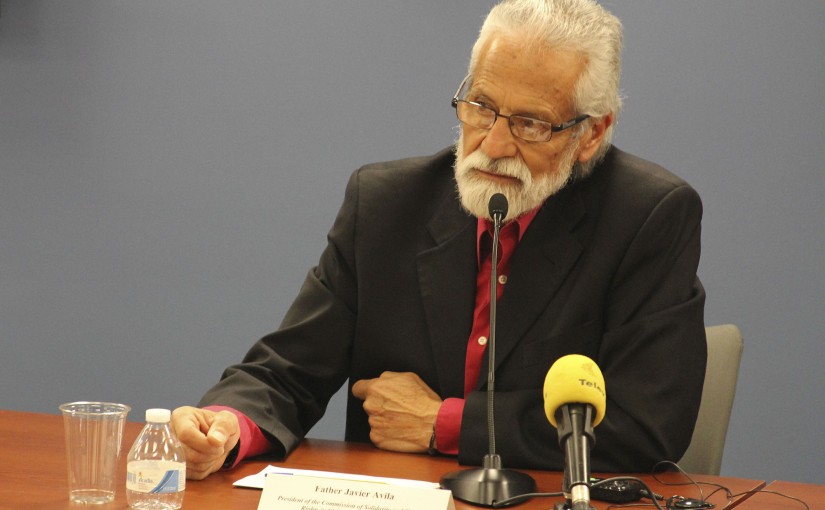Panel: Harsher penalties for straw buyers could curb gun traffic to Mexico

Cronkite News
Stricter U.S. gun measures are needed to stem the flow of guns to Mexico, where the weapons are fueling violence and leaving people “under siege” with little hope of help from their government, activists said Thursday.
In addition to tougher laws, they called for tougher enforcement by federal officials, who they say have been reluctant to act since the fallout from Operation Fast and Furious, the failed “gun-walking” operation by the Bureau of Alcohol, Tobacco, Firearms and Explosives.
But an ATF spokesman said Thursday that while gun-trafficking to Mexico is a problem, the agency has not backed off its enforcement efforts.
“By no means are we turning our back or turning a blind eye,” said Phoenix ATF Special Agent Thomas Mangan. “Trying to stem that flood of guns and that iron river of guns … and trying to keep ahead of the techniques and tactics that these criminal organizations are using in obtaining guns is ever-evolving.”
His comments came in response to a forum at George Washington University at which a priest from the Mexican state of Chihuahua described how gun violence there has left “entire towns under siege, cut off and under threat … 24 hours a day.”
Speaking through a translator, the Rev. Javier Avila said families who lost loved ones in the 2008 massacre in the town of Creel are frustrated with a government that seems to have done little to investigate the crimes.
“You lose someone in a terrible way and nothing happens,” Avila said. “Young people massacred, mothers disappeared, children disappeared, husbands, wives disappeared.”
Avila, a Jesuit priest and president of the Commission of Solidarity and Defense of Human Rights in Chihuahua, said some towns are “completely threatened or co-opted by crime” and police implicated “at all levels.”
But the problem goes beyond Mexico’s borders, he said, noting that the U.S. is the largest consumer of Mexican drugs and the biggest supplier of Mexican guns. Avila said about 70 percent of the weapons that end up in Mexico come from the U.S.
ATF statistics for recent years estimate that 65.5 to 75.3 percent of Mexican guns came from the U.S.
And the bulk of those guns come from the border states of Arizona, California, Texas and New Mexico, said Chelsea Parsons, associate director of crime and firearms policy at the Center for American Progress, which co-sponsored Thursday’s event.
Parsons said that while Mexico has some of the strictest gun laws in the world, it is “quite easy” to buy weapons north of the border.
Mexican cartels exploit the U.S. gun trade by sending “straw purchasers” who can easily pass background checks to buy weapons in bulk from licensed dealers. With about 40 percent of U.S. gun sales done online or in private sales, she said, it is also “easy and legal to buy without a background check.”
Parsons called for universal background checks and tougher sanctions on straw purchasers to “make it worthwhile” for law enforcement to prosecute the “little fish” in gun-trafficking operations.
She also pointed to the cartels’ creativity in evading customs inspections to smuggle guns into Mexico.
Border Patrol Chief Michael Fisher agreed that gun smugglers have gotten more creative.
“We used to find them in the passenger seat or the bed of a pickup truck,” Fisher said. “Now they are going to false compartments. They are using the same techniques that are used to smuggle drugs north through the points of entry.”
But while Parsons said the furor over Operation Fast and Furious spoiled federal law enforcement agencies’ appetite for a crackdown on gun-running, Mangan said agencies are not “gun shy” about fighting firearms trafficking.
Mangan said harsher penalties for straw purchasers might cut down on the number of such “lie-and-buy” operations, but they might not stop the flow altogether.
“Significant sentences of straw buyers would absolutely be a deterrent because it would close a valve of ways these individuals are getting guns,” he said. “They would probably go to another way, perhaps buying them on the Internet, which is just completely unregulated.”















